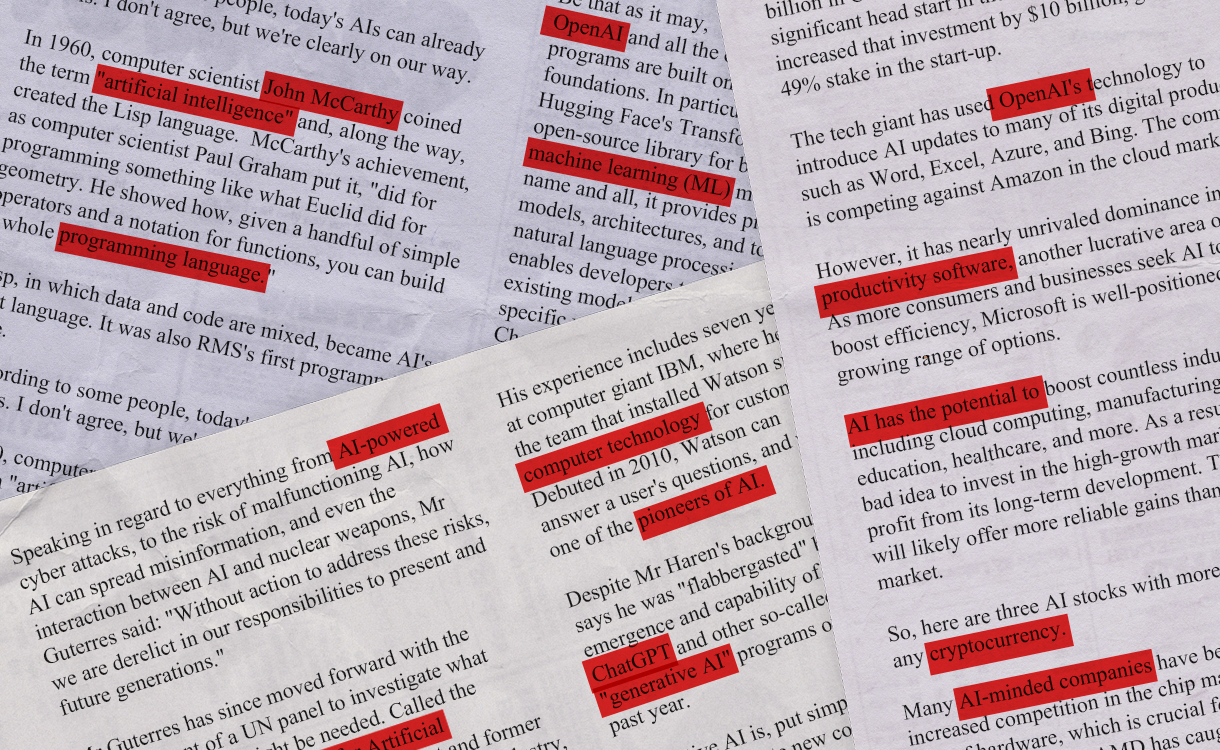
While artificial intelligence (AI) is stealing the spotlight this year, it has long been a part of Flipboard’s DNA. AI plays an important role in our algorithms, and our expert machine-learning team is constantly working to provide you with better and more relevant content for your unique preferences. We use AI and algorithms to extract topics from content, diversify, deduplicate, discover, and personalize your feeds. The content sources are editorially verified and managed for topical expertise.
We have always believed that human beings are (and will continue to be) crucial to implementing AI responsibly. “We did not shy away from putting journalists in charge of the algorithms,” our CEO Mike McCue said back in 2021. ”Algorithms and tech need to be balanced with judgment and principles.” This remains true today.
As a long-term believer in AI, Flipboard is closely monitoring how the technology is impacting journalism and the media industry. Already we’ve seen some “spectacular, very public flops,” as noted by Ina Fried at Axios. We see many benefits but also value transparency and informing our users. To that end, we’ve recently updated our Community Guidelines, adding a section about AI to require that publishers on Flipboard disclose any content produced whole or in part by AI. The guidance is:
“Articles or other content created with artificial intelligence (AI) is allowed on Flipboard provided that the publisher prominently discloses the use of AI. Our prohibitions on misinformation also apply, and we hope publishers include humans in the editing and fact-checking of any AI content. Flipboard may take steps to limit any AI-generated content that is false, harmful or otherwise degrading to our platform.”
We’ve already seen several publishers using AI make these disclosures and we applaud them. The reading public has a right to know how the content they are consuming was created, to help them make their own judgements about veracity and accuracy. It’s one reason why Flipboard prioritizes content with an identifiable author.
Disclosures should be prominent and placed on each individual article where AI was involved. Here’s an example from Buzzfeed: “This article was collaboratively written by Tara Falkenberg + Buzzy, our creative AI assistant.”
Ultimately, we want Flipboard to remain a trusted environment where people can continue to find the highest quality and most accurate information to suit their interests. AI, used responsibly with human oversight, can of course assist this goal. But we’ll be watching for examples where it does not and take action accordingly.
And we hope our friends in publishing and content creation will continue to believe in the importance of human editing and oversight of technology. It’s our belief that machines can’t (or shouldn’t) fully replace human journalists, editors and writers. Yes, AI can process and generate content faster than humans, but it doesn’t have feelings, intuition or consciousness. It may not understand language that is racist or discriminatory. To fully capture the human experience, journalism still needs the nuance, emotion and experience of real people.
— Carl Sullivan, North America managing editor, curates the Fact Check Magazine on Flipboard’s Politics Desk.
